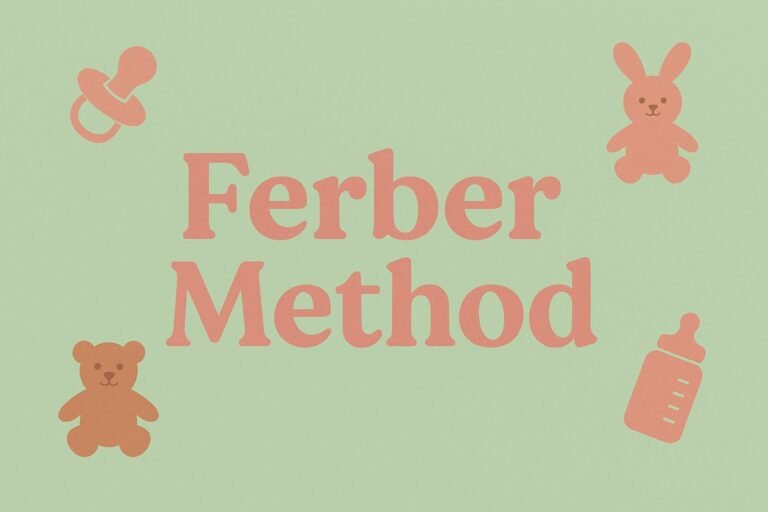Parenting can feel like an impossible balancing act. On the one hand, you want to be firm enough to set boundaries. On the other hand, you know you have to be gentle enough to nurture your child’s spirit. If you’re looking for a science-backed approach to finding the right balance that actually works, authoritative parenting might be exactly what you need.
This comprehensive guide will show you everything you need to know about authoritative parenting style – from its definition and some real-life examples to practical tips you can implement right away.
Wondering if authoritative parenting is right for your family? Or struggling to find that sweet spot between being too strict or too lenient?
You’re not alone!
Many parents feel confused about different parenting styles and their long-term effects on child’s development, behavior, and overall success. This guide will clarify what authoritative parenting really means, how it differs from other approaches, and most importantly, how you can use it to raise confident, well-adjusted children.
Table of Contents
What Is Authoritative Parenting?
Authoritative parenting isn’t just another parenting trend; it’s one of the 4 main parenting styles identified by developmental psychologist Diana Baumrind in 1967. She divided parenting styles into 4 distinct categories based on 2 key dimensions: 1) Responsiveness (warmth) and 2) Demandingness (control).
The 4 parenting styles include:
- Authoritative parenting: High warmth and high expectations
- Authoritarian parenting: Low warmth and high expectations
- Permissive parenting: High warmth and low expectations
- Uninvolved (or neglectful) parenting: Low warmth and low expectations
While many parents struggle to find the right balance between these two dimensions, the authoritative approach has consistently shown the best outcomes for children’s development and well-being across numerous studies spanning over five decades.
Authoritative Parenting Definition
Authoritative parenting is a parenting style that is characterized by high responsiveness to children’s emotional needs combined with reasonable demands and consistent boundaries. According to the American Psychological Association (APA), authoritative parents are “demanding and responsive.” They set clear expectations while maintaining warmth and open communication with their children.
The term “authoritative” comes from the Latin “auctoritas,” meaning influence, authority, or prestige – not to be confused with “authoritarian,” which implies strict control.
Research shows that authoritative parenting is practiced by many families across the globe, with studies reporting varying percentages depending on the population surveyed. While it may not be the most common style, it remains one of the most studied approaches due to its positive outcomes.
The interest in this method of raising children stems from the fact that Dr. Diana Baumrind’s original research found that children of authoritative parents demonstrated the most positive developmental outcomes.
More recent studies show that children raised with this parenting philosophy demonstrate better emotional regulation and social competence compared to children brought up with other parenting styles. Research published in various journals indicates strong positive correlations between authoritative parenting and these developmental outcomes.
Authoritative Parent Characteristics
Parents who embrace the authoritative parenting style typically demonstrate these key characteristics:
- Set clear rules and expectations while explaining the reasoning behind them
- Show warmth and nurturing alongside setting and maintaining consistent boundaries
- Encourage independence while developing and keeping appropriate structure
- Listen to their children’s opinions and consider their feelings
- Use natural consequences and logical discipline rather than punishment
- Adapt their parenting as children grow and develop and their needs change
- Model the behavior they want to see in their children
- Validate emotions while teaching appropriate expression of emotions
- Engage in open dialogue about family decisions when age-appropriate
- Provide scaffolding for children to learn new skills
All in all, authoritative parenting promotes better communication between parents and children, with open dialogue and meaningful conversations, which helps children develop stronger emotional bonds and better social skills during childhood and beyond.
Authoritative vs Authoritarian Parenting
Many confuse authoritative parenting with authoritarian parenting because of the similar sounding. However, there are significant differences between the two approaches, especially in the warmth that parents show to their children and the closeness between parents and child, that impact child development in important ways.
The main distinctions between the two parenting styles include:
Authoritative Parenting
- Explains rules and involves children in decision-making, when appropriate
- Shows warmth and emotional responsiveness
- Uses reasoning and discussion
- Encourages independence within appropriate boundaries
- Sees mistakes as learning opportunities
- Validates children’s feelings while maintaining boundaries
- Adapts rules as children mature
Authoritarian Parenting
- Demands obedience without explanation
- Shows less warmth and emotional connection
- Uses more commands and punishments
- Emphasizes strict control over children
- Views mistakes as failures
- Dismisses children’s feelings as irrelevant
- Maintains rigid rules regardless of circumstances
Understanding this differentiation is crucial as you consider the most optimal way to adjust your parenting style for the best possible outcome for your child’s development and future. The main difference is that authoritative parenting creates a partnership between the parent and the child, while authoritarian parenting establishes a hierarchy where the parent’s word is law, leaving the child with no options but to obey the rules imposed by the parent.
A longitudinal study led by Dr. Alan Sroufe from the University of Minnesota shows early parental responsiveness and sensitivity, typical for the authoritative approach, are strong predictors of secure attachment, better social competence, and positive developmental outcomes in the long term.
6 Real-Life Examples of Authoritative Parenting
While the theory behind authoritative parenting is not too complicated, it is a bit abstract. That’s why the best way to gain full understanding of the concept is to look at how authoritative parenting looks in everyday situations that each one of us – parents – faces.
So, here are 6 situations that we can easily identify with:
Example 1: Bedtime Routine
An authoritative parent says: “Bedtime is at 8 P.M. because your body needs 10 hours of sleep to grow and feel good tomorrow. Would you like to read a book or have me tell you a story first? We can also choose your pajamas before we start getting ready.”
This approach sets a clear boundary – 8 P.M. bedtime – while explaining the objective need for it and also offering choices within that structure. The parent acknowledges the child’s autonomy while maintaining the essential routine that is so crucial for children.
Example 2: Homework Time
When a child resists doing their homework, an authoritative parent might say: “I understand you’d rather play, but homework needs to be finished first so you can enjoy your evening without stress. Would you prefer to do it before or after dinner? I’m here if you need help, and we can work on organizing your schedule together so that you have time both to finish your homework and to play afterwards.”
This acknowledges the child’s feelings and desire to play (which is also crucially important for developing a wide range of skills) while maintaining the expectation and offering support as needed. The parent teaches time management skills while showing empathy.
Example 3: Screen Time
Excessive time spent in front of a screen is a challenge that most families face nowadays. Here is what you can try saying: “Our family has a rule about one hour of screen time on school days because too much screen time leaves you no time to play outside and affects your sleep. Would you like to use it all now, save some for later, or split it between TV and tablet? What do you think works best for you?”
This sets consistent limits while teaching decision-making skills and respecting the child’s ability to plan. The parent explains the reasoning behind the limit.
Example 4: Chore Responsibilities
Many families struggle with getting children involved in chores without this turning into another source of drama. Something to try is: “Everyone in our family helps around the house because that’s how we take care of our home together. Your responsibilities include keeping your room clean and setting the table. Which would you like to do first today? We can create a chart to keep track of what you have done and what needs to be done if this helps you feel more organized.”
This approach teaches responsibility while providing structure and choice. The parent frames chores as family teamwork rather than punishment.
Example 5: Conflict Resolution
When siblings fight, an authoritative parent intervenes: “I see you’re both upset about sharing the toy. Let’s sit down and each person can say how they feel without being interrupted. Then we’ll figure out a solution together that’s fair to both of you. What do you think?”
This simple statement models problem-solving skills while maintaining family peace. The parent facilitates finding a solution that works for everyone rather than imposing a readily available solution that might not work for anyone.
Example 6: Academic Challenges
In case a child struggles with a difficult school subject, an authoritative parent responds: “Math can be really challenging sometimes, and it’s OK to feel frustrated. Let’s break this problem into smaller steps. Which part feels most confusing? We can ask your teacher for extra resources or consider tutoring if needed.”
This validates feelings while maintaining academic expectations. The parent practices problem-solving together with the child instead of demanding immediate success.
Why Authoritative Parenting Works

According to many different studies that span a few decades, authoritative parenting brings the best outcomes across.
Here’s why this balanced approach is so effective:
The Science Behind Authoritative Parenting
The theory behind authoritative parenting combines the best of both worlds: Warmth and structure. By providing emotional support while maintaining clear expectations, authoritative parents create what psychologists call a “secure base” – an environment where children feel safe to explore while understanding boundaries.
Dr. Mary Ainsworth’s attachment theory, expanded by Dr. John Bowlby, demonstrates that children need both security and autonomy for healthy development. Authoritative parenting provides exactly this combination.
Research-Backed Benefits
Numerous studies have looked into the advantages that authoritative parenting offers over other ways of raising a child.
Following is a summary of the most important benefits across a number of categories:
- Emotional regulation and social skills: Research indicates that authoritative parenting positively predicts children’s self-control and emotion management skills, which are essential for effective peer interactions and social problem-solving.
- Academic performance: Children raised with authoritative parenting tend to be more independent, successful, well-adjusted, and happier, which can contribute to better academic outcomes.
- Mental health: Studies have shown that children of authoritative parents exhibit fewer behavioral problems and better emotional regulation.
- Self-esteem: A study examining the relationship between parenting styles and self-esteem among medical students found that authoritative parenting positively influences self-esteem levels.
- Behavioral problems: Research indicates that authoritative parenting is linked to fewer behavioral issues in children, promoting better emotional regulation and social competence.
- Peer relationships: Authoritative parenting has been associated with improved peer relationships, fostering better social skills and reduced tendencies toward aggression or victimization.
In addition, the American Academy of Pediatrics (AAP) notes that authoritative parenting promotes secure attachment, which leads to better self-esteem, emotional regulation, and social skills throughout life. Children learn to balance their needs with others’ needs, developing empathy and consideration.
Neurological Development
The reasons for the better outcomes listed above have a physiological foundation.
Brain imaging studies show that children raised with authoritative parenting demonstrate:
- Better prefrontal cortex development, which is responsible for decision-making
- Improved amygdala regulation, which supports emotional processing
- Enhanced neural pathways, which help with stress management
- Stronger connections in areas responsible for empathy
This is some strong evidence that suggests that this style of parenting might actually the most appropriate one across different cultural and social backgrounds.
Authoritative Parenting Pros and Cons
Like any parenting approach, authoritative parenting has its strengths and challenges. Understanding both sides helps you implement this style effectively in your specific family context.
Let’s take a look at the main advantages and disadvantages.
Pros
The benefits of authoritative parenting include:
- Children develop better self-regulation and emotional intelligence: They learn to manage their emotions appropriately.
- Improved academic performance and school readiness: Children understand expectations and can work independently
- Stronger parent-child relationships based on trust and respect: Open communication fosters lasting bonds.
- Children are less likely to engage in risky behaviors: They make better decisions due to internalized values.
- Better social skills and peer relationships: They learn conflict resolution and empathy
- Higher self-esteem and confidence: Achievements within an appropriate structure helps build competence and trust in your own capabilities.
- Reduced anxiety and depression in children: Children feel secure and supported by their parents while having reasonable independence.
- Children learn problem-solving and decision-making skills: They practice thinking through understanding the consequences of their choices and actions.
- Better stress management capabilities: Children learn to handle challenges with support from their parents.
- More likely to develop healthy relationships in adulthood: They model positive relationship patterns demonstrated by their parents.
Cons
Meanwhile, some challenges of authoritative parenting to consider comprise:
- Requires consistent energy and patience: It’s more demanding than passive approaches such as involved parenting.
- Takes time to explain rules and engage in discussions: Quick fixes are often not available under this method.
- Can be difficult when you’re tired or stressed: Maintaining consistency requires effort
- May face criticism from parents using other styles, family members, friends, and even complete strangers: Others might see you as too lenient (if they favor authoritarian parenting) or strict (if they practice permissive or neglectful parenting).
- Can be challenging in high-stress family situations: Crises may require more immediate responses that cannot be easily provided under this gentle parenting style which necessitates meaningful communication between the parent and the child.
- Requires adjusting approach as children grow: What works for toddlers won’t work for teens, so parents need to change their style dynamically.
- Tends to be more complex than simple rule-enforcement: This method demands a thoughtful, relevant response tailored to each particular situation.
- May initially seem “harder” than permissive parenting: Children might test boundaries more.
You should keep in mind that no parenting style is perfect for each and every situation. The goal is consistency in your overall approach while adapting to specific circumstances and your child’s unique needs which are likely to evolve over time.
How to Be an Authoritative Parent: 10 Techniques That Really Work
Ready to embrace authoritative parenting to support your child’s emotional and social development in the long run?
Here are practical, research-backed techniques you can start using today:
- Set clear, age-appropriate expectations: Write down family rules and discuss them together. Create a family mission statement that everyone agrees to and contributes to.
- Explain your reasoning: “We hold hands in parking lots because cars can’t always see small children, and your safety is my top priority,” is an effortless way to show the need for certain rules.
- Offer appropriate choices: “Would you like to brush your teeth before or after putting on your pajamas? Both need to happen, but you get to decide the order,” is another phrase that requires zero time and zero effort and that can at the same time make your child feel heard and considered.
- Use natural consequences: Explain to your child that if they refuse to put on a jacket on a chilly day, they might get cold and have to skip the birthday party they are invited to on the weekend. Discuss how this might make them feel.
- Practice active listening: Get down to your child’s eye level, repeat back what you hear, acknowledge their feelings, and show that you understand what the problem is before getting into solving it.
- Stay calm during conflicts: Take deep breaths, use a calm voice, and model the emotional regulation you want to teach. Children truly are like sponges that absorb how adults act and what they say.
- Celebrate effort, not just achievement: Say something like, “I’m proud of how hard you tried even though it didn’t work out this time. What did you learn from the experience?” to show your child that the work that they put into an assignment is as important as the outcome. Discuss what needs to be adjusted to get better outcomes next time.
- Create routines with flexibility: Establish daily structures that provide security while allowing for breaking the routine on special occasions.
- Teach problem-solving steps: “Let’s identify the problem, think of three possible solutions, choose one to try, and see how it works.” This simple sentence helps your child learn important skills that will serve them in all aspects of life.
- Model the behavior you expect: Show kindness, patience, proactive steps, and problem-solving in your own actions. Children learn more from what they see than what they hear.
With these 10 simple tips, you can start working towards becoming a more authoritative parent, like your children deserve.
Disclosure: This post contains affiliate links. As an Amazon Associate, I earn from qualifying purchases. I may earn a commission if you click and make a purchase, at no extra cost to you.
5 Best Authoritative Parenting Books

While the techniques listed above can help you adjust your parenting style to be more gentle and understanding of your child’s needs, it’s always a good idea to resort to some professional support when it comes to a subject as important as your child’s upbringing. The good news is that there are many parenting books that provide insights into the authoritative method as well as tips on how to implement it in different situations and to children with various needs.
These 5 expert-recommended books will deepen your understanding of authoritative parenting and provide practical strategies:
1. “Positive Discipline” by Jane Nelsen, Ed.D.
“Positive Discipline” is a classic guide that offers practical techniques for authoritative parenting through the establishment of mutual respect and encouragement. What makes it special is its focus on teaching life skills while maintaining kindness and firmness simultaneously.
Nelsen’s approach aligns perfectly with the authoritative principles while offering specific tools for every age group. The book includes real-life scenarios and step-by-step solutions that empower parents to guide their children effectively through all situations that life might serve.
2. “How to Talk So Kids Will Listen & Listen So Kids Will Talk” by Adele Faber and Elaine Mazlish
The bestseller “How to Talk So Kids Will Listen & Listen So Kids Will Talk” teaches parents how to communicate effectively with children of all ages. Its unique combination of real-life examples and practical exercises makes it invaluable for authoritative parents who want to strengthen their connection while setting boundaries.
The book’s focus on emotional intelligence resonates perfectly with authoritative parenting goals. Each chapter includes comics and dialogues that clearly illustrate communication techniques that parents can apply to build strong relationships with their children.
3. “The Whole-Brain Child” by Daniel J. Siegel, M.D. and Tina Payne Bryson, Ph.D.
This groundbreaking book explains child development through the lens of neuroscience, helping authoritative parents understand the “why” behind their children’s behavior. What sets “The Whole-Brain Child” apart from other authoritative parenting books is its scientific foundation combined with strategies that align with authoritative parenting principles and that can be easily applied.
With the help of this guide, parents can learn to nurture their child’s developing brain and maintain healthy boundaries at the same time. The “whole-brain” strategies help integrate emotional and logical thinking into your child’s growth and development.
4. “Parenting with Love and Logic” by Foster Cline and Jim Fay
This influential work emphasizes teaching children to think and make decisions within appropriate boundaries. The authors provide strategies for building responsibility and self-esteem through natural consequences.
What makes “Parenting with Love and Logic” so special is its focus on teaching rather than controlling, perfectly aligned with the ideas behind authoritative parenting. The “love and logic” approach helps parents remain calm while children learn from their choices.
5. “Raising an Emotionally Intelligent Child” by John Gottman, Ph.D.
Based on decades of research, this book teaches parents how to coach children through emotional challenges while keeping structure. Gottman’s “emotion coaching” approach complements authoritative parenting beautifully by validating feelings while guiding behavior.
What distinguishes “Raising an Emotionally Intelligent Child” from the myriad of other parenting books is its research-backed techniques for raising emotionally aware and socially competent children. The 5-step emotion coaching method is particularly valuable for authoritative parents.
Final Thoughts
Authoritative parenting offers a balanced approach to raising a child that benefits both parents and children. By combining warmth with structure, explaining rules while maintaining boundaries, and encouraging independence within limits, you can create an environment where children thrive emotionally, socially, and academically.
Through my 12 years as a mom of two wonderful boys, I’ve identified myself as a mix of authoritative and permissive parenting styles. Growing up, my children spent countless hours with just me, making me their go-to person for absolutely everything (yes, including “Mom, where are my socks?” when they’re literally standing right in front of them). This led to an authoritative dynamic where I became their ultimate source of truth on everything from tying shoes to solving friendship problems.
But sometimes, when life feels overwhelming and the world seems to throw everything at us at once, I dial up the permissive side. After all, when the environment feels crushing enough, a few extra cuddles or reading yet another story before bedtime never hurt anyone. So, what I’ve learned is that it’s all about finding that sweet spot between structure and flexibility that works for your family.
What type of parent are you? Do you relate to authoritative parenting, or do you use a different approach? Have you found techniques that work particularly well for your children? Share your experiences, challenges, and victories in the comments below. I’d love to hear your stories and learn from your journey, and so do other parents. After all, we’re all in this together!







